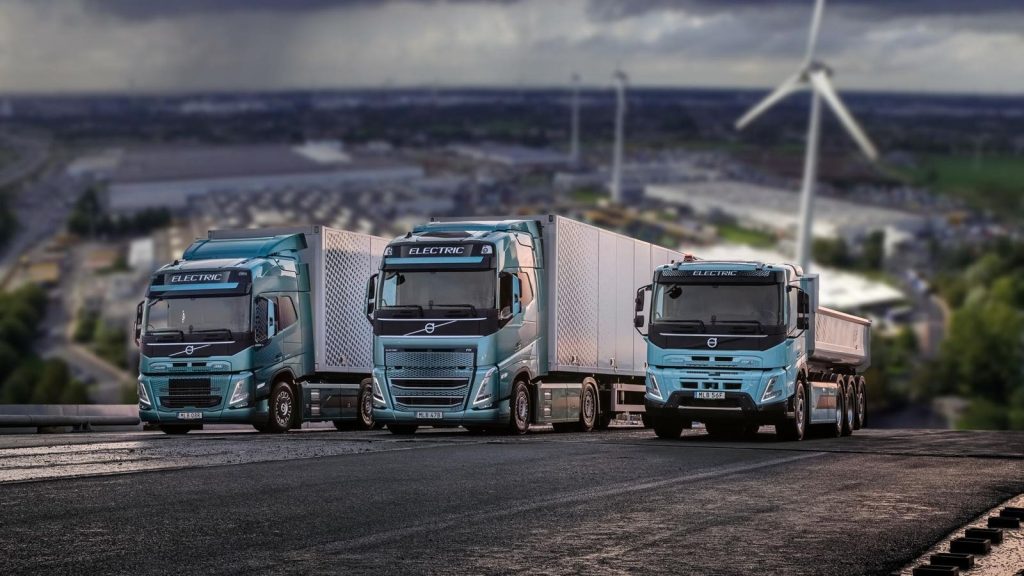Beyond making electric vehicles available to customers, what are manufacturers doing to reduce their own environmental footprint?
The transportation sector accounts for approximately one-quarter of all global greenhouse gas emissions. According to the Intergovernmental Panel on Climate Change, about 70% of direct transport emissions result from the use of vehicles on roads worldwide, including light passenger cars, heavy-duty freight haulers and all classes in between. The companies producing these vehicles are increasingly focused on battery electric and plug-in hybrid electric powertrains, with some pledging to phase out internal combustion engine vehicles altogether. While this shift will result in emissions reductions on the road, are there opportunities to drive greater sustainability improvements through the vehicle supply chain?
To answer this question, I caught up with the sustainability leads from Volvo Group and Audi of America during this year’s Climate Week. Karin Svensson is Volvo Group’s chief sustainability officer with a tenure of more than two decades. Spencer Reeder is Audi of America’s director of government affairs and sustainability, with a background in climate and energy. Despite the notable difference in product lines—with Volvo Group serving the truck, bus, construction and mining markets, while Audi is firmly in the passenger vehicle space—the two companies have a lot in common when it comes to sustainability initiatives.
Committing to Net Zero
Volvo Group and Audi have both made net-zero emissions commitments in alignment with the Paris Climate Agreement. Volvo Group is striving to achieve their goals by 2040, and Audi has its sights on 2050 at the latest. For any corporation to achieve net-zero carbon emissions, that typically involves a combination of reducing emissions from the source (e.g., production plants), leveraging nature and technology to remove emissions from the atmosphere and purchasing carbon offsets.
Greening The Vehicle Production Ecosystem
Both Volvo Group and Audi are reducing emissions from their own operations, including corporate offices, production facilities and the energy that powers those buildings. As Audi works toward the goal of carbon neutrality at all its sites by 2025, the company recently announced that its Ingolstadt, Germany plant (the site of the new Audi Q6 e-tron) will begin net carbon-neutral production on January 1, 2024. Volvo Group is gradually shifting its production facilities, which are in 18 different countries, to renewable energy sources like wind and solar. Energy use makes up a large portion of manufacturing costs, so renewable power investments help ensure lower, less volatile energy costs over the long term.
Another element of vehicle production is the choice of materials. Given that steel is a main ingredient across its product line, Volvo Group has partnered with a supplier, SSAB, to source fossil-free steel produced using hydrogen. The fossil-free steel is now making its way into Volvo Group EVs. Both companies are also integrating recycled materials into vehicles. Audi, for example, uses recycled glass windshields in the Q4 e-tron and recycled plastic covers for seat belt buckles in Q8 e-tron models. By diversifying materials now, manufacturers can get ahead of the curve on sustainable sourcing and reduce the impact of future supply chain disruptions.
Additionally, EV battery recycling is both an area of skepticism from the public and focus for manufacturers.
“Audi is working closely with a number of like-minded organizations that are creating a more electrified and sustainable future,” said Reeder. “One example is Redwood Materials, who we have collaborated with since July 2022 to establish a domestic supply chain for recycling our EV batteries to create a closed-loop supply chain for lithium-ion batteries in the U.S.”
Today, Redwood Materials works directly with the more than 1,000 Volkswagen Group of America dealers across the country to collect and recycle end-of-life batteries from VW and Audi EVs. Volvo Group also recognizes the need to facilitate a second life for vehicle batteries and is actively exploring options so that the company is prepared to support customers.
Developing The Workforce For A Zero Emission Future
To meet the rising demand for zero emission vehicles, as well as contribute to social sustainability, workforce development must be a priority for companies across the transportation industry. Audi is upskilling current employees and training for the workforce of the future through programs such as the U.S.-based Audi Education Partnership. The Audi Education Partnership strives to create a pipeline of next-generation, expert Audi service technicians able to work on both internal combustion engine vehicles and EVs. Volvo Group is also upskilling its workforce to produce EVs as well as reskilling personnel focused on research and development, making sure there is sufficient engineering talent and capacity moving forward.
While charging infrastructure is not a core business focus for either company, both recognize the need for continued partnerships and policies to ensure light-, medium- and heavy-duty EV drivers have a positive charging experience. A key consideration is the global workforce needed to install, operate and maintain that infrastructure.
Navigating The Road Ahead
Svensson and Reeder agree that much of the progress observed today in decarbonizing the transportation sector can be attributed to technology developments, policy ambition and greater consumer interest in climate solutions, including EVs. Svensson called it a “golden opportunity,” as the products are available today, including electric cars, trucks, buses and equipment.
“The solutions we’re now seeing become a reality are initiatives we’ve been working on for a long time. Volvo Group has good momentum and I’m very hopeful for the coming decade,” she summarized.
But the work is far from over. Reeder said, “What I’ve observed during my time with Audi is that the global transport sector has made significant progress, however, there are hurdles that remain.”
Both Volvo Group and Audi recognize the value of partnerships to tackle challenges like grid modernization and more reliable and accessible charging infrastructure to enable greater penetration of EVs. These partnerships are in addition to working closely with Volvo Group and Audi customers, staying in touch with what those customers need to make the transition to a more sustainable transportation future.
Read the full article here










